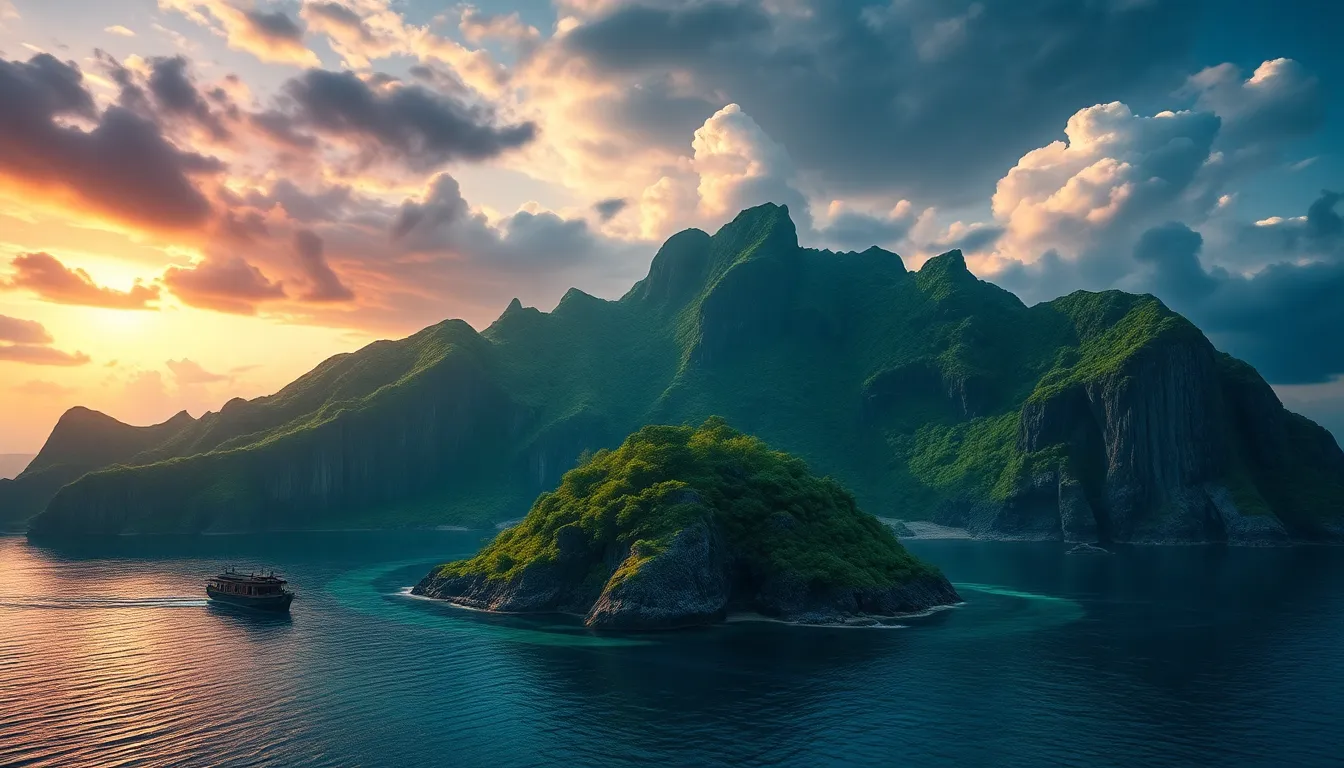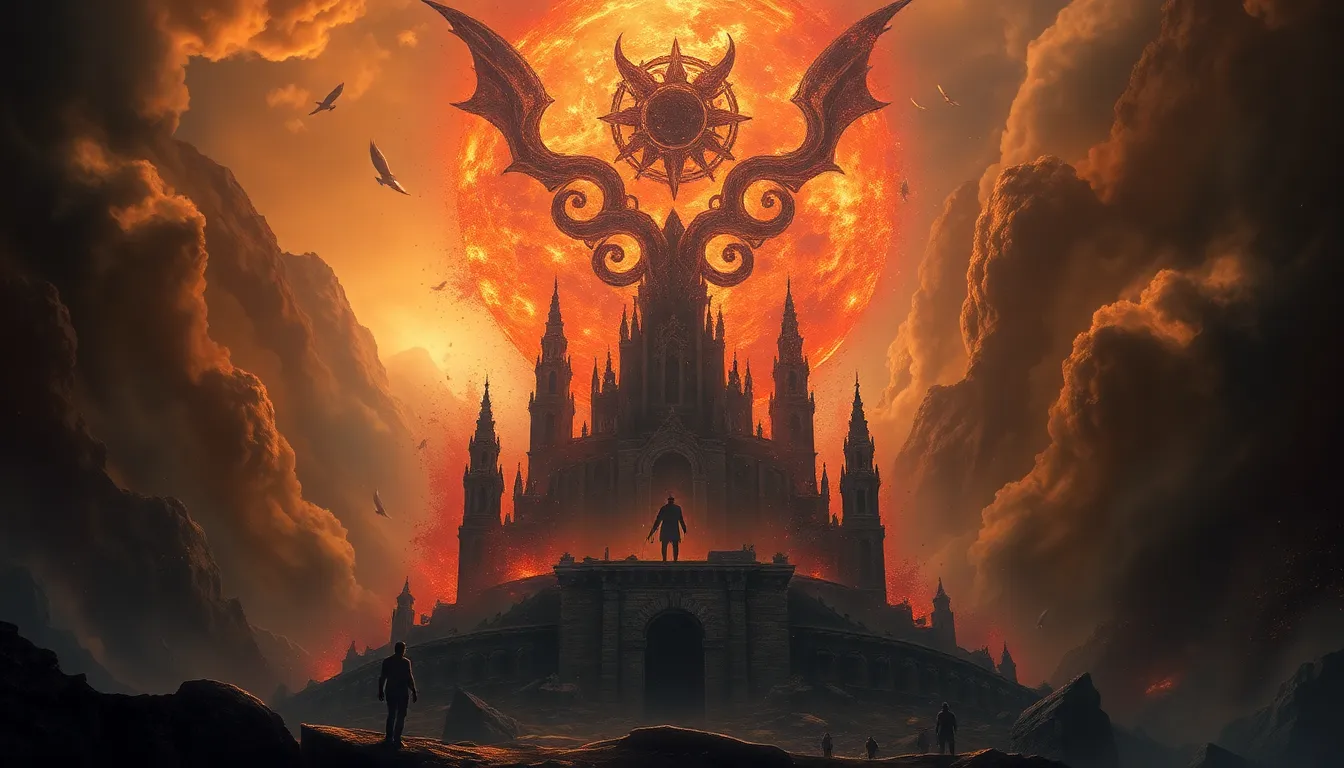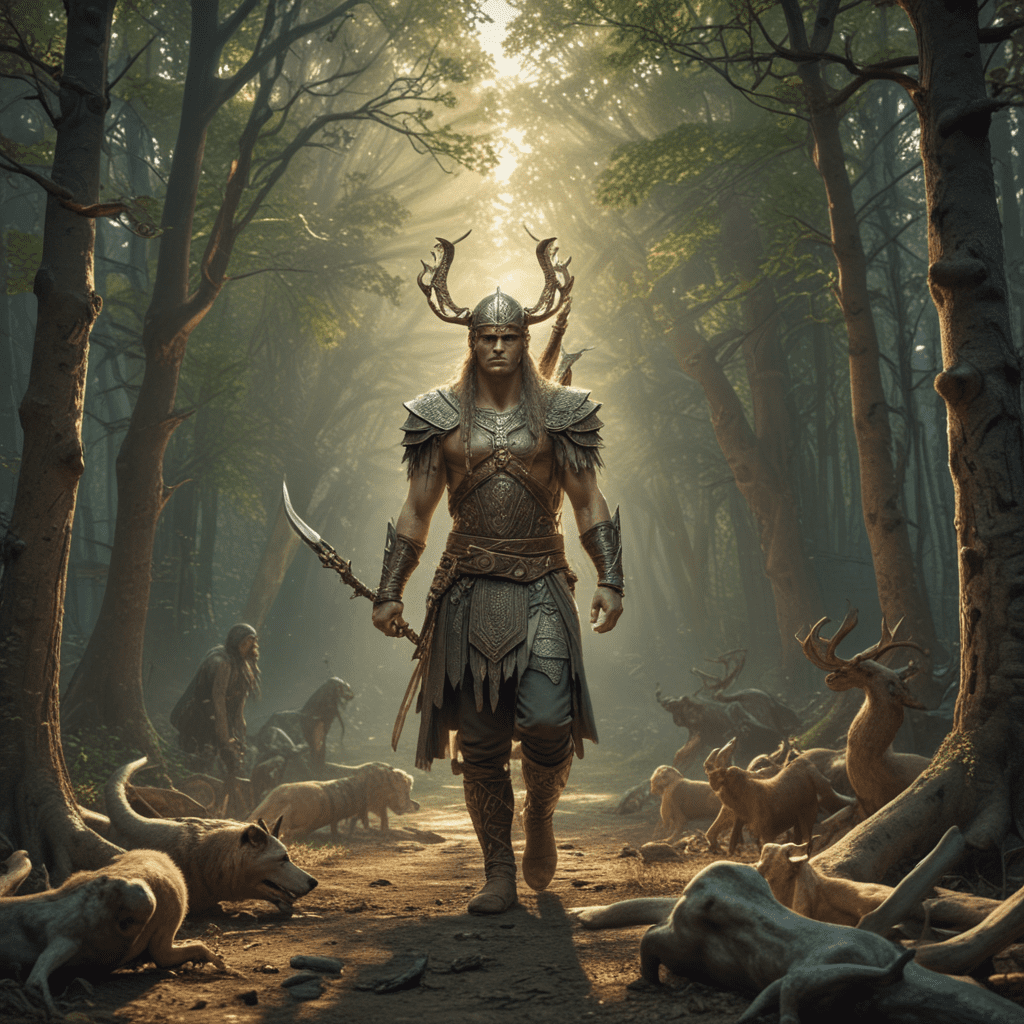The Mysterious Island of Lemuria: Lost Continent Myths
1. Introduction to Lemuria: Setting the Stage
Lemuria, often described as a lost continent, holds a significant place in various mythologies and speculative theories surrounding ancient civilizations. The concept of Lemuria has intrigued scholars, writers, and enthusiasts alike, representing humanity’s enduring fascination with the unknown and the possibility of lost worlds.
Throughout history, the idea of lost continents has surfaced in numerous cultures, often embodying the mysteries of human ancestry and the unexplored realms of our planet. These narratives not only reflect our curiosity but also our desire to connect with a past that may have been richer and more complex than we currently understand.
2. Historical Roots: The Birth of Lemurian Myth
The origins of the Lemurian myth can be traced back to the 19th century, a period marked by significant advances in science and exploration. The term Lemuria was first coined by the British zoologist Philip Sclater in 1864. He proposed the existence of a land bridge in the Indian Ocean to explain the distribution of lemurs across Madagascar and the Indian subcontinent.
Key figures in the development of Lemurian mythology include:
- Philip Sclater: His theories on biogeography sparked interest in the potential existence of a lost continent.
- Helena Blavatsky: Theosophist who incorporated Lemuria into her spiritual teachings, linking it to ancient human evolution.
- James Churchward: An early 20th-century writer who expanded on the idea, proposing that Lemuria was home to an advanced civilization.
3. Geological Perspectives: The Science Behind the Myth
To understand the myth of Lemuria, it is essential to consider geological theories such as continental drift and plate tectonics. These scientific principles explain how continents have shifted over millions of years, making the existence of a landmass like Lemuria plausible in ancient times.
Evidence for and against the existence of Lemuria includes:
- For: Similarities in flora and fauna between Madagascar, India, and Africa suggest historical connections.
- Against: Current geological evidence does not support the existence of a large landmass in the Indian Ocean.
4. Cultural Interpretations: Lemuria in Various Mythologies
Lemuria is not merely a scientific curiosity; it has found its way into various mythologies and spiritual beliefs. In Hinduism, for example, the concept of lost continents resonates with stories of ancient civilizations and their moral lessons.
In addition to religious interpretations, Lemuria has been represented in:
- Art: Artists have depicted Lemuria as a utopian paradise filled with advanced beings.
- Literature: Writers like H.P. Lovecraft and Edgar Rice Burroughs have incorporated Lemurian themes in their works.
- Popular Culture: Movies, television shows, and video games often reference Lemuria, showcasing its impact on modern storytelling.
5. Theories and Speculations: What Happened to Lemuria?
Numerous theories exist regarding the fate of Lemuria. Some researchers speculate that natural disasters, such as volcanic eruptions or tsunamis, led to its submersion. Others suggest that climate change might have rendered the continent uninhabitable.
Comparisons are often drawn between Lemuria and other lost civilizations, such as:
- Atlantis: Another mythical continent, often described as advanced and ultimately destroyed by catastrophic events.
- Mu: A proposed continent in the Pacific, similar in theme to Lemuria.
6. Modern Research: Archaeological and Scientific Investigations
Despite the lack of concrete evidence for Lemuria, modern scientific and archaeological efforts continue to explore the depths of the ocean and the history of human civilization. Researchers employ advanced technologies in oceanography and paleontology to investigate the possibility of submerged landmasses.
Some notable efforts include:
- Seafloor Mapping: Using sonar technology to identify underwater features that might indicate past landmasses.
- Paleontological Studies: Examining ancient species’ distributions to understand historical land connections.
7. Public Fascination: Lemuria in Contemporary Culture
Lemuria continues to captivate the public imagination, influencing a diverse range of contemporary cultural expressions. From novels to films, the myth of Lemuria has permeated various media, often as a symbol of lost wisdom and ancient knowledge.
Social media and online communities play a significant role in perpetuating the Lemurian myth, fostering discussions and theories among enthusiasts. Platforms like forums and social media groups allow individuals to share their interpretations and findings related to Lemuria.
8. Lemuria and the Human Psyche: Psychological Implications
The allure of lost worlds like Lemuria speaks to a deeper psychological yearning within humanity. Myths of lost civilizations often reflect our hopes, fears, and aspirations regarding our origins and the future of humanity.
Some implications of this phenomenon include:
- Collective Memory: Lost worlds represent a shared cultural narrative that connects generations.
- Cultural Identity: Myths like Lemuria contribute to our understanding of our place in the universe and our historical roots.
9. Criticism and Skepticism: Debunking the Lemurian Myth
While the myth of Lemuria is fascinating, it is not without its critics. Scientific critiques highlight the lack of empirical evidence supporting the existence of such a continent.
Discussions surrounding pseudoscience also play a role in the propagation of the Lemurian myth, as some proponents rely on anecdotal evidence rather than rigorous scientific methods.
10. Conclusion: The Legacy of Lemuria in Modern Thought
Lemuria represents more than just a lost continent; it embodies humanity’s insatiable curiosity and desire to explore the unknown. Myths like Lemuria serve as a reminder of our quest for knowledge and understanding, highlighting the importance of exploring our history and the mysteries of our planet.
Ultimately, the enduring nature of myths like Lemuria reflects our need to connect with stories that transcend time and space, grounding us in our collective human experience.



